South Amman Mill was established in 1997 in Jordan and is today the biggest flour mill in the country. The mill has 3 production lines, all outfitted by the Swiss company Bühler AG, with a total milling capacity of 1,000 tons/day and wheat storage capacity of 100,000 tons. South Amman Mill’s market share in Jordan is over 29%, and its export market share is 100% as it is the only mill in Jordan that exports flour to neighboring countries. The mill is owned by Al-Hazaa Investment Group which operates and manages many flour mills in the Middle East.
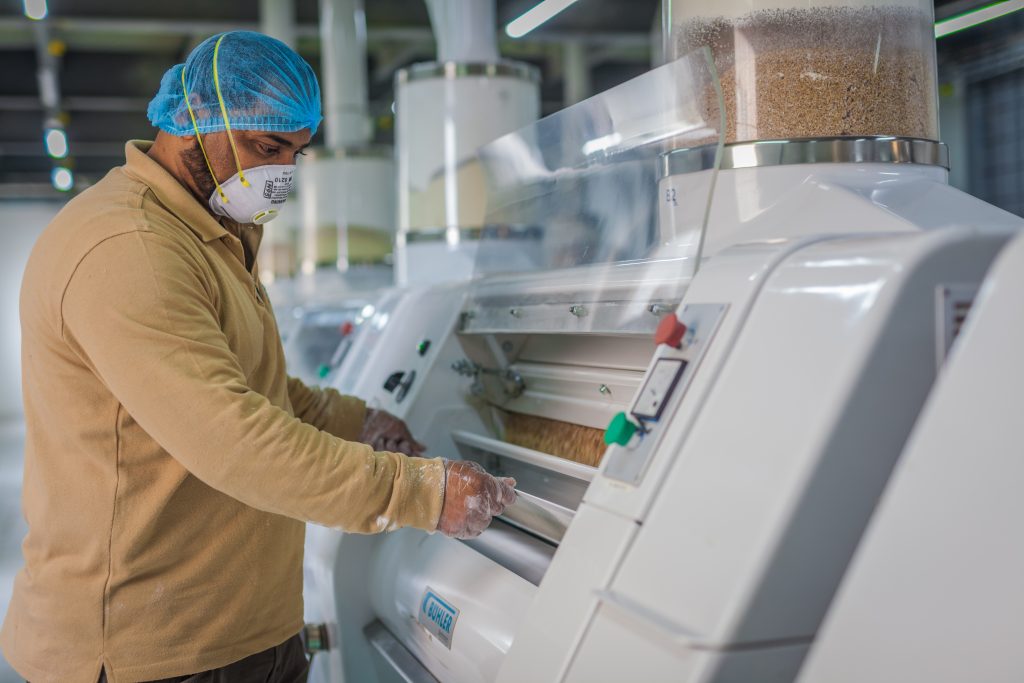
Enhancing food security in Jordan and the region has always been a vision for South Amman Mill, and was highlighted even more during the current COVID-19 pandemic and the impact it had on the flour milling sector. The COVID-19 crisis was not easy for any industry, especially for the food sector and flour production. The flour market witnessed unprecedented high demand during the crisis, since as soon as lockdowns were announced in many countries worldwide, people rushed to markets to buy large quantities of the white gold of life, and supermarkets and bakeries also placed unexpected orders for flour.
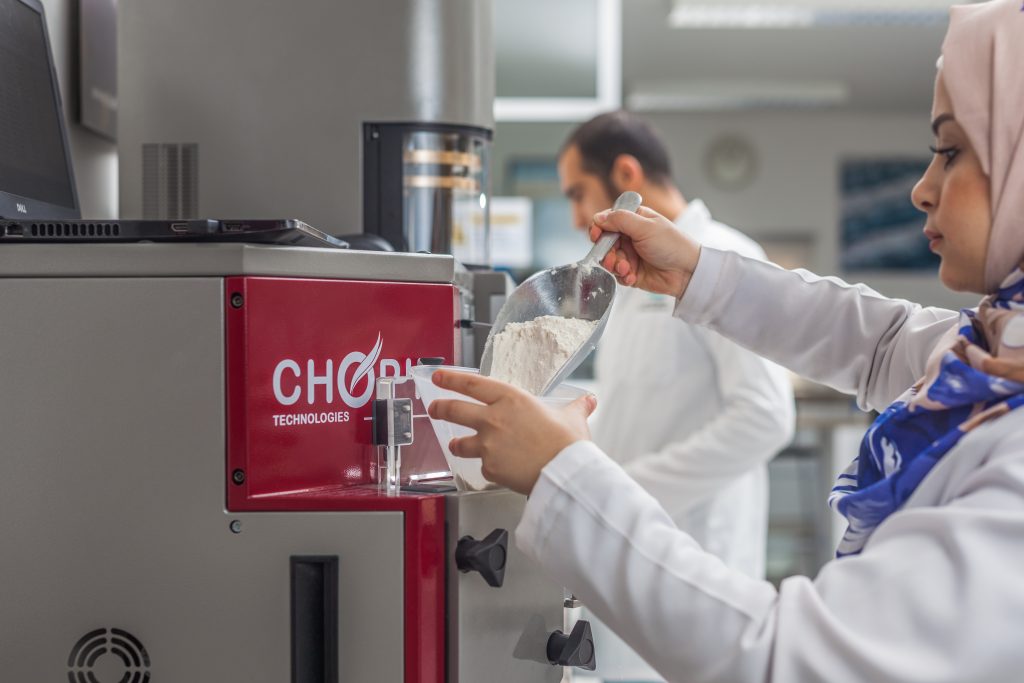
In Jordan, the government announced a full lockdown on March 14, 2020, and suspended schools, banned public gatherings, and closed the borders and airports in response to the rapid spread of the virus. This caused a state of alarm and people rushed to supermarkets to stock up on food supplies, despite the continuous assurances from the government that food stocks in the country were sufficient and there was no cause for concern. People were still worried, and there was panic-buying and stockpiling, putting great pressure on the country’s markets and factories, especially on mills, which supply one of the most important staple foods, flour.
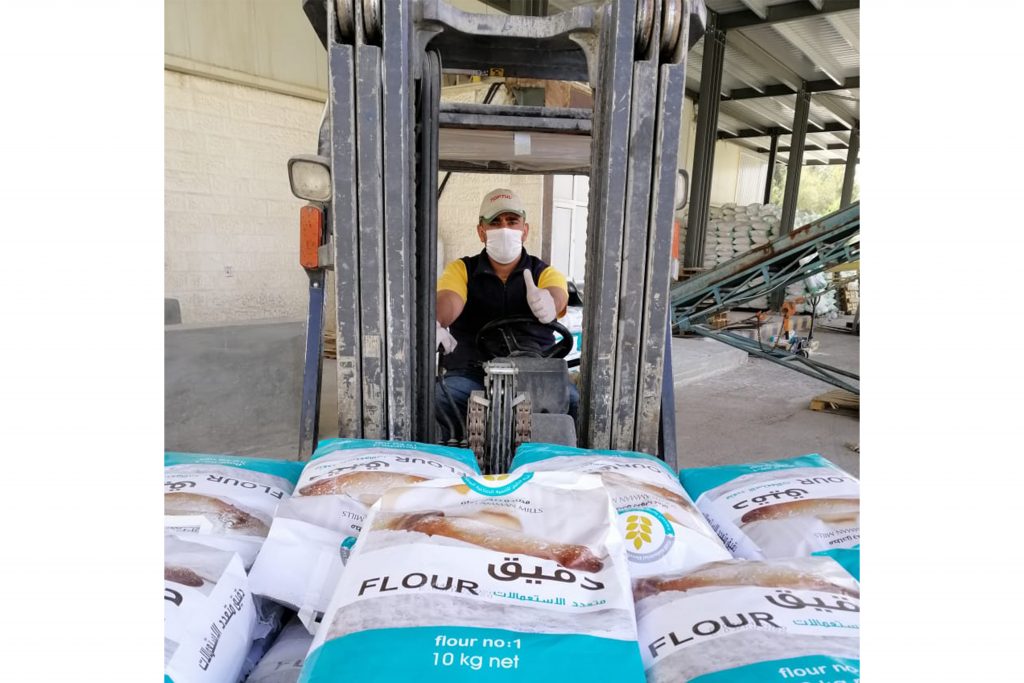
Flour is used in many basic foods that are consumed daily. Therefore, due to the pandemic, bakeries in Jordan started to run low on flour, hypermarkets ran out of consumer packs of flour, long lines of flour trailers were seen at mills, and people queued up outside bakeries and supermarkets.
As the biggest flourmill in the country, South Amman Mill stood ready to cooperate and supply flour 24/7 to retailers and bakeries inside Amman and other governorates. The Mill operated at full capacity and complied with the government’s decisions in regards to the crisis, and committed to doing its best to supply the country’s flour needs.
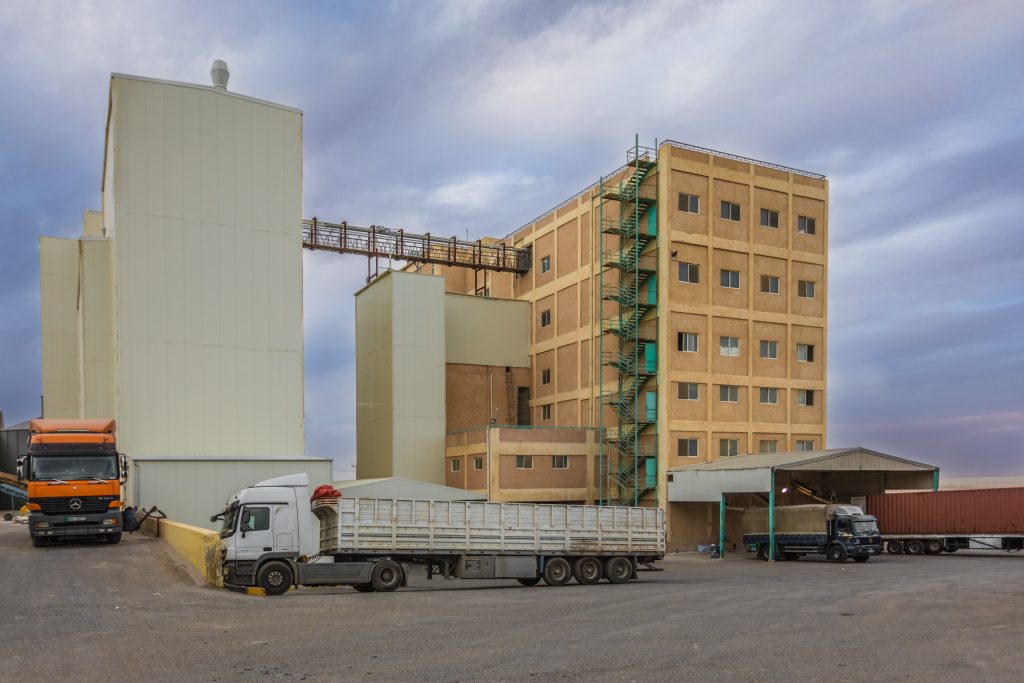
After the pandemic hit, Jordan imposed a complete curfew for over six weeks, with restaurants closed and a ban on the use of cars. People started baking at home and weren’t going out, so demand for flour spiked. This change in consumer behavior was very challenging because it required shifting operations and focusing more on retail and less on bulk; before the pandemic, retail flour represented only 10% of the mill’s flour production but today it is over 30%.
This had both positive and negative impacts, positive as it met the decreased demand for larger flour packages due to restaurants closing and the increased sales of small packages, while also negative as the mill witnessed a shortage of 1kg sacks and had difficulty getting more of them from suppliers quickly.
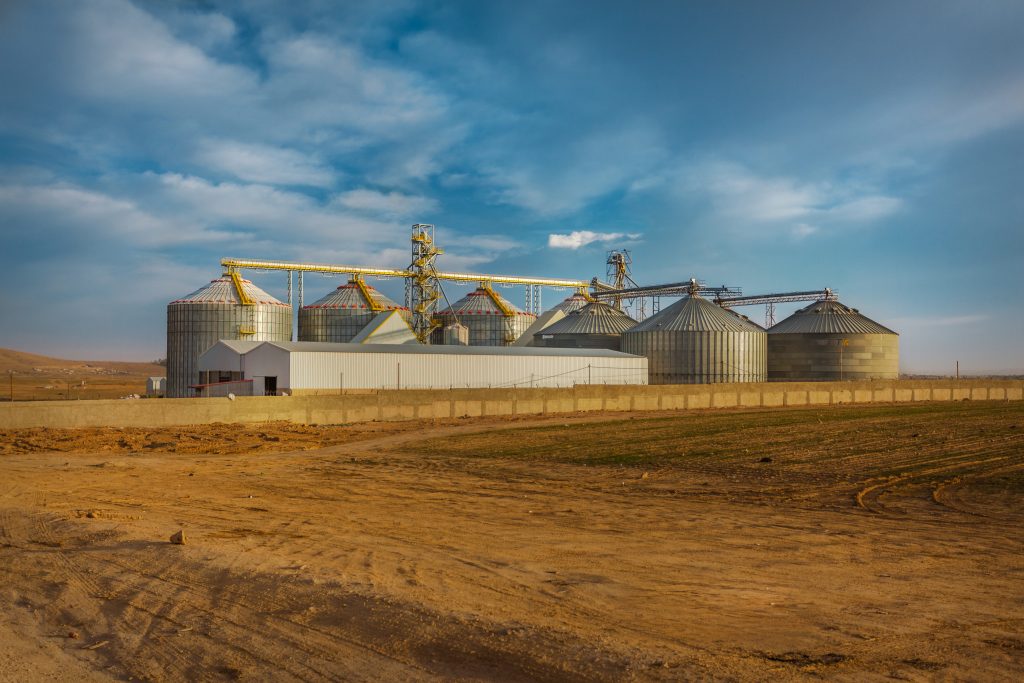
Other negative impacts of the pandemic were the difficulty of having the entire workforce on site because of the lockdown and social distancing regulations, and the mill had to reduce the number of workers per shift in order to ensure the safety of employees while doing their duty.
In addition to the concerns regarding having enough supplies of grains, millers and technicians from outside Jordan weren’t able to enter the country, which caused many work delays. However, being a member of Al-Hazaa Investment Group helped South Amman Mill greatly during the pandemic, as it received a lot of support from the Group’s trained technical staff, who played a large role in overcoming any problems due to their outstanding performance and dedication to their work.
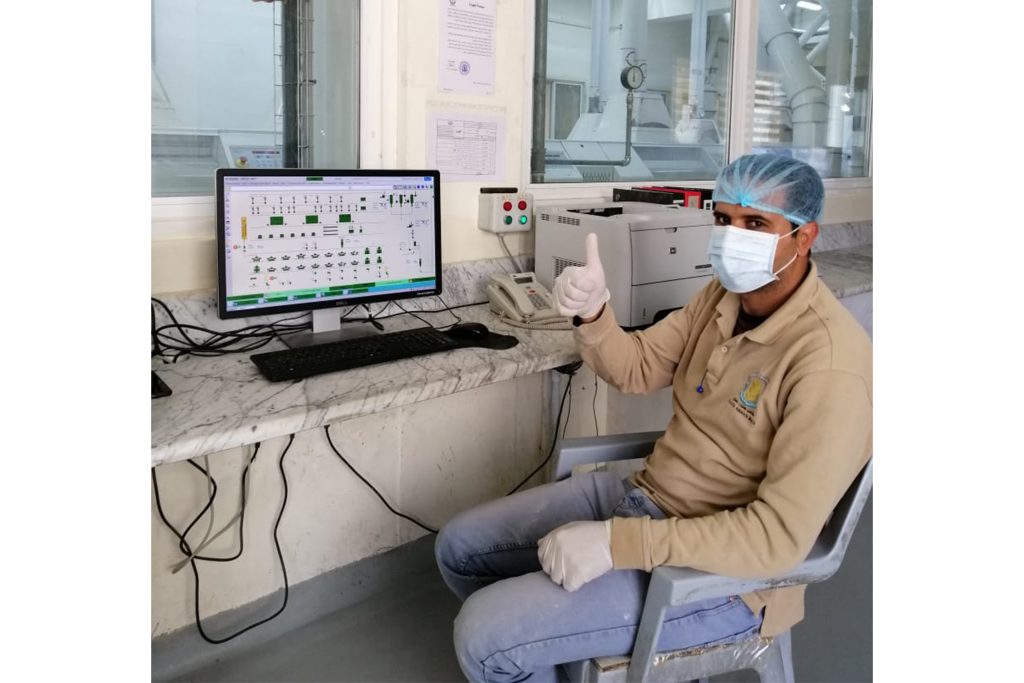
As a result of the increased demand for flour, some traders raised their prices to take advantage of the circumstances. But the Ministry of Industry and Trade in Jordan launched a campaign for consumer protection and punished anyone who raised their prices. South Amman Mill complied with the ministry’s orders, and continuously reassured it of its readiness to meet all flour needs during the crisis at its usual price.
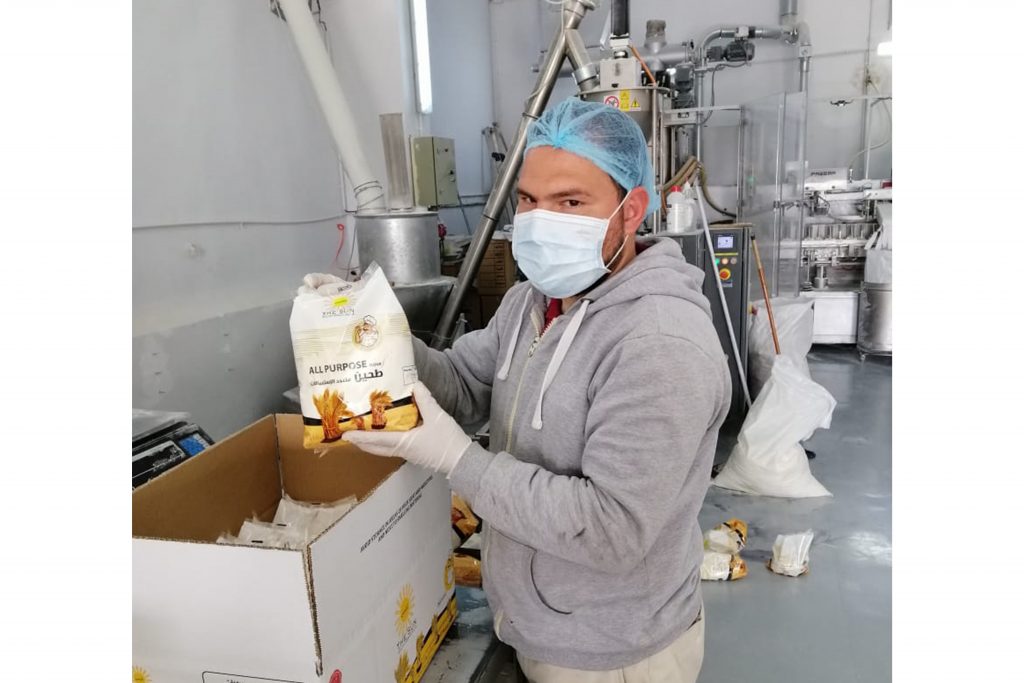
The increased demand caused much crowding in supermarkets and bakeries during the rapidly spreading pandemic, so Al-Hazaa Investment Group acted quickly and created an application that enables customers to order flour online and have it delivered within 24 hours without the need to go out, to decrease crowding and hopefully decrease spreading of the virus. This application, Daqeeq, which is the Arabic word for flour, was launched at the beginning of the crisis and provides delivery directly to customers without intermediaries, from South Amman Mill and the two other mills that are owned by Al-Hazaa Group in Jordan. It is currently only available in Jordan, but Al-Hazaa Investment Group intends to implement it soon in Egypt and UAE as well.
At South Amman Mills, we are very proud that all our products are eco-friendly, and are produced using 100% sustainable, clean energy supplied by Al-Hazaa Group’s Company for Renewable Energy. This is the biggest private-use solar power plant in Jordan and has a daily production capacity of 21 megawatts, and supplies all the Group’s factories in Jordan with clean energy.
South Amman Mill was established in 1997 in Jordan and is today the biggest flour mill in the country. The mill has 3 production lines, all outfitted by the Swiss company Bühler AG, with a total milling capacity of 1,000 tons/day and wheat storage capacity of 100,000 tons. South Amman Mill’s market share in Jordan is over 29%, and its export market share is 100% as it is the only mill in Jordan that exports flour to neighboring countries. The mill is owned by Al-Hazaa Investment Group which operates and manages many flour mills in the Middle East.

Enhancing food security in Jordan and the region has always been a vision for South Amman Mill, and was highlighted even more during the current COVID-19 pandemic and the impact it had on the flour milling sector. The COVID-19 crisis was not easy for any industry, especially for the food sector and flour production. The flour market witnessed unprecedented high demand during the crisis, since as soon as lockdowns were announced in many countries worldwide, people rushed to markets to buy large quantities of the white gold of life, and supermarkets and bakeries also placed unexpected orders for flour.

In Jordan, the government announced a full lockdown on March 14, 2020, and suspended schools, banned public gatherings, and closed the borders and airports in response to the rapid spread of the virus. This caused a state of alarm and people rushed to supermarkets to stock up on food supplies, despite the continuous assurances from the government that food stocks in the country were sufficient and there was no cause for concern. People were still worried, and there was panic-buying and stockpiling, putting great pressure on the country’s markets and factories, especially on mills, which supply one of the most important staple foods, flour.

Flour is used in many basic foods that are consumed daily. Therefore, due to the pandemic, bakeries in Jordan started to run low on flour, hypermarkets ran out of consumer packs of flour, long lines of flour trailers were seen at mills, and people queued up outside bakeries and supermarkets.
As the biggest flourmill in the country, South Amman Mill stood ready to cooperate and supply flour 24/7 to retailers and bakeries inside Amman and other governorates. The Mill operated at full capacity and complied with the government’s decisions in regards to the crisis, and committed to doing its best to supply the country’s flour needs.

After the pandemic hit, Jordan imposed a complete curfew for over six weeks, with restaurants closed and a ban on the use of cars. People started baking at home and weren’t going out, so demand for flour spiked. This change in consumer behavior was very challenging because it required shifting operations and focusing more on retail and less on bulk; before the pandemic, retail flour represented only 10% of the mill’s flour production but today it is over 30%.
This had both positive and negative impacts, positive as it met the decreased demand for larger flour packages due to restaurants closing and the increased sales of small packages, while also negative as the mill witnessed a shortage of 1kg sacks and had difficulty getting more of them from suppliers quickly.

Other negative impacts of the pandemic were the difficulty of having the entire workforce on site because of the lockdown and social distancing regulations, and the mill had to reduce the number of workers per shift in order to ensure the safety of employees while doing their duty.
In addition to the concerns regarding having enough supplies of grains, millers and technicians from outside Jordan weren’t able to enter the country, which caused many work delays. However, being a member of Al-Hazaa Investment Group helped South Amman Mill greatly during the pandemic, as it received a lot of support from the Group’s trained technical staff, who played a large role in overcoming any problems due to their outstanding performance and dedication to their work.

As a result of the increased demand for flour, some traders raised their prices to take advantage of the circumstances. But the Ministry of Industry and Trade in Jordan launched a campaign for consumer protection and punished anyone who raised their prices. South Amman Mill complied with the ministry’s orders, and continuously reassured it of its readiness to meet all flour needs during the crisis at its usual price.

The increased demand caused much crowding in supermarkets and bakeries during the rapidly spreading pandemic, so Al-Hazaa Investment Group acted quickly and created an application that enables customers to order flour online and have it delivered within 24 hours without the need to go out, to decrease crowding and hopefully decrease spreading of the virus. This application, Daqeeq, which is the Arabic word for flour, was launched at the beginning of the crisis and provides delivery directly to customers without intermediaries, from South Amman Mill and the two other mills that are owned by Al-Hazaa Group in Jordan. It is currently only available in Jordan, but Al-Hazaa Investment Group intends to implement it soon in Egypt and UAE as well.
At South Amman Mills, we are very proud that all our products are eco-friendly, and are produced using 100% sustainable, clean energy supplied by Al-Hazaa Group’s Company for Renewable Energy. This is the biggest private-use solar power plant in Jordan and has a daily production capacity of 21 megawatts, and supplies all the Group’s factories in Jordan with clean energy.
This year’s celebration is especially dedicated to all the flour heroes who ensured that flour supplies were secure under difficult circumstances due to the COVID-19 pandemic.
We, at Namilco will join our many loyal customers and all consumers in the celebration of World Flour Day on March 20, 2021, and are looking forward to seeing many bakers, pastry makers and chow mein manufacturers use this day to draw attention to the significance and diversity of flour products with creative ideas. And we certainly look forward to seeing and tasting many unique indigenous Guyanese delights.

But who is a hero? People working in the flour industry are very modest and would hardly see themselves as such. A hero is a person admired for their courage, outstanding achievements, or noble qualities. Courage was needed to continue working during these times – not from home but on site in the mills. Our dedicated employees work in shifts 24 hours a day, six days per week, 52 weeks each year to ensure the continuous supply of flour. They are our quiet but diligent heroes.
Working in the industry, we all know that flour is a staple food that is often taken for granted. Yet bread, crackers, cake, pastries, roti, chow mein, sweetmeats and many other foods that we all love and consume regularly can’t be produced without it.
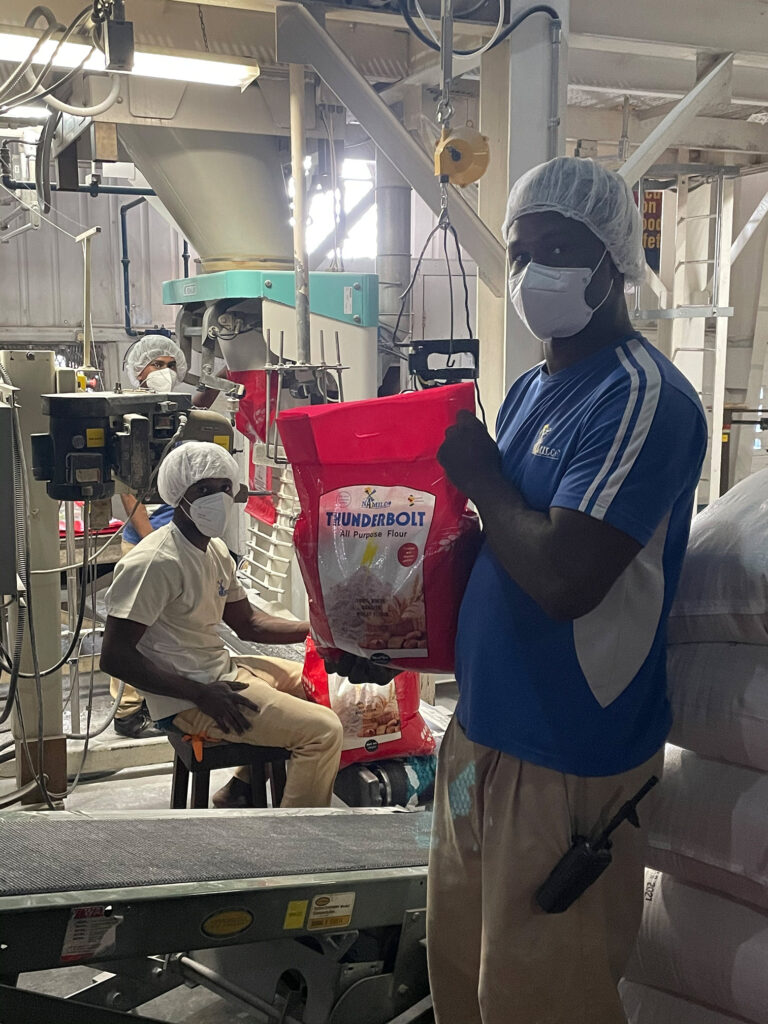
Some people who lived in Guyana in the eighties will have learnt to appreciate flour more, as due to an economic crisis it was banned for a long period at that time.
Therefore let us remember that flour feeds billions of people all over the world and is one of mankind’s most important staple foods – and has been so for thousands of years. The value of flour and its nutritional impact on mankind cannot be overstated.
We would also like to draw attention to the fact that flour was revolutionised from a nutritional standpoint in the mid-20th century when many countries began to enrich flour with micronutrients such as iron, niacin, thiamine and riboflavin. Near the end of the century, folic acid was added.
Nearly a quarter of the world’s population suffer from anaemia caused by a lack of iron. Iron fortification of food results in an increase in haemoglobin and serum ferritin levels, and a reduced risk of being anaemic or iron deficient. Folic acid fortification has been found to substantially reduce the incidence of neural tube defects in a number of countries, including several in North and South America.
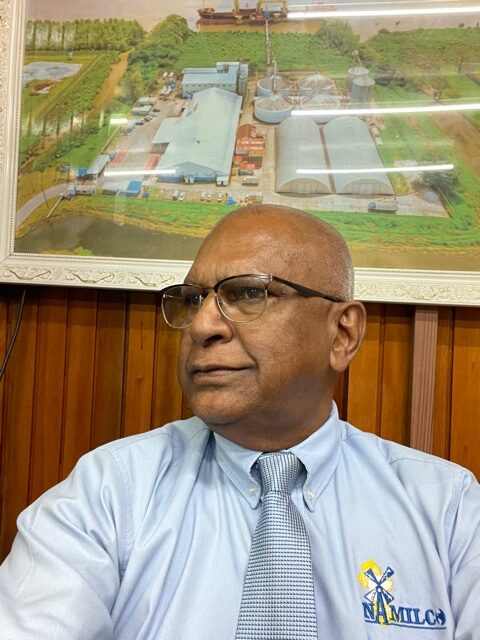
In Guyana flour is the only commodity used as a medium to give consumers a daily intake of vitamins, minerals and other micronutrients. Therefore, milling and baking take on even greater importance during times of crisis.
The current COVID-19 pandemic has been catastrophic in its impact worldwide, posing a threat to the global economy and food security. Lockdowns in hard-hit regions, rising unemployment, increased wheat and freight costs and reduced economic activity are being seen throughout the world. Vaccines now present renewed hope of an eventual return to normalcy, but economic and other hardships are among the many negative impacts of the pandemic.
Our flour mill must therefore keep grinding, to guarantee that there is a steady supply of nutritious, affordable flour. In these times, perhaps more than ever, many will have a greater appreciation for the value of this basic but versatile food item – flour.
We therefore salute the proud men and women along the grain-based food supply chain — the grain farmers, flour millers, product shippers, bakers, chefs and other flour users — whose dedication to their craft ensure that we are supplied with our daily bread from the farm to the table.
To all those people, we at the National Milling Company of Guyana thank you for enriching us with flour – the “white gold.”
HAPPY WORLD FLOUR DAY.
NAMILCO – More Than Just Flour
Our mill is located in the heart of the island of the Dominican Republic (Cotuí). Founded in 1986 as a rice factory and subsequently a pasta factory and wheat mill, our company has always strived to produce quality products and maintain a work culture in which our employees become a big family. And like with every family, we take care of each other.
When the pandemic hit our island, the sector that was impacted the worst was the tourism industry. Currently hotels are working below capacity, affecting the main source of income. Nevertheless, demand for flour rose to a high level, and as a company we met the challenge head on. Our main concern was getting our team back to the mill. All it took was a phone call and everybody was back working harder than before. Of course, we implemented all the necessary hygiene measures in order to keep our families safe, but the risk of infection is always present.

To our surprise, a group of employees started a prayer group during lunch break. They met in the parking lot, braving the sun, got down on their knees on the hard concrete and started praying. The group grew to a point where word of this activity got out to the nearby towns and people started driving to our parking lot and joining in on the prayers from their cars.
Bad days and difficult times don’t last forever, but only with faith will we be able to see them through to the end. Believing in God is not an option, it’s a decision, and anything is possible for those who embrace faith.
We are confident that as a company, as a nation, and as people, we will get through this challenge and come out stronger than before. Believe!